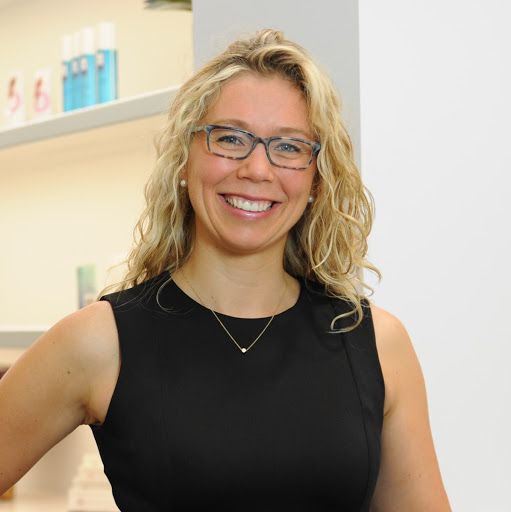It’s not the products but the approach
By Lisette Hilton; Reviewed by Elizabeth A. Kiracofe, MD
It often takes outside-the-box thinking to get teenagers to agree with anything, including acne treatment adherence.

Chicago-based dermatologist Elizabeth A. Kiracofe, MD, who specializes in adolescent acne, said that reaching teens and getting their buy-in on acne treatment regimens is less about what to use, than it is about how to get teens to correctly use what their dermatologist prescribes and suggests.
All in the approach
The approach when talking with a teen patient about acne includes listening, learning, and building a plan that teen is most likely to use.
“Acne adherence is such an important factor. To me, adherence is different than compliance. If I give a patient a plan that does not make sense for them in their life, it is not their fault if they are not compliant with it,” Dr. Kiracofe said. “They need to adhere to a plan that works for them, and it is my fault if I don’t ask them the right questions to make sure that a plan works.”
Dr. Kiracofe’s recipe for adolescent acne treatment success
Dr. Kiracofe’s staff asks each new adolescent acne patient to throw everything in a bag that has touched his or her face in the past 30 days and to bring that bag to the first appointment. The exercise engages teens and helps them realize how many different things they might have tried to treat their acne.
Going through the products is a conversation starter, aimed at engaging, not shaming, teen patients. Dr. Kiracofe uses it as a way to show respect to the teen. She starts the conversation with, “Wow, it’s clear to me that you obviously really care about your skin ….” She then points out examples of some problems that her previous patients have had with specific products or when learning from YouTube tutorials.
She assures patients that does not mean they are wrong, but they should understand why she has some concerns about the products or approaches they might be using.
“I’ve heard from many teens that their doctors do not feel their input matters; that they just need to do what doctors say. Of course there is some truth in that, but it also ignores human nature. Whether teens or adults, no one likes to do something only given the rationale ‘because I said so.’ They are not going to do what you say if you act like you are better than them, or older than them, or if you know more than them,” Dr. Kiracofe said.
“Teenagers are trying to fix their acne with YouTube videos and blog posts. They are slathering their entire faces with honey. They are doing wild things. But we do them a disservice if we shame them for those things.”
“The perfect acne plan doesn’t matter if the patient is not able to follow through on it. So instead of focusing on the perfect plan, I focus on: What is the patient actually willing to do? What can they commit to, and how do we build on that?”
Where the detective work comes in
After a few minutes with a patient, Dr. Kiracofe learns what regimen is most likely to work with him or her.
She starts with, “You wake up in the morning and then what happens?” Sometimes getting to what is important takes some back and forth. For example, the teen might respond with, “I have breakfast.”
“I say, ‘You wake up and immediately go downstairs and have breakfast?’ And they are like, ‘Oh. No, I get dressed and go to the bathroom and brush my teeth and go have breakfast.’ I say, ‘When you go brush your teeth, do you have your shirt on, you’re dressed?’”
If the teen says yes to being dressed, Dr. Kiracofe knows that is not a patient that she wants to be using a benzoyl peroxide wash in the morning. Benzoyl peroxide will likely stain their clothes.
The other clue from that conversation is the teen suggested he or she does not shower in the morning.
“I love benzoyl peroxide washes, but I like them only in the shower. I am specific with patients about that,” she said.
Planning means tracing the patient’s routine and building an acne program around it. COVID-19 has changed routines for many teens who are home schooling. Dr. Kiracofe tells those patients to keep topical acne products next to their laptops instead of in the bathroom. Patients apply their products between classes while sitting at their laptops. She has patients post small sticky notes with instructions for use on their laptops.
“My main emphasis is to build the plan around the patient’s life, instead of making the patient build their life around my plan. Quite frankly, it just does not work as well the other way,” she said.
Parental involvement may hinder treatment
Dr. Kiracofe lets parents know what the data has shown: parents’ involvement in their child’s acne routine is inversely correlated with success.
“The more they remind their children what to do, the less they are going to do it,” she said. “I tell them that pretty emphatically and in front of the patient. I just say, ‘Look, I know you want what is best, but this is Sarah’s plan, and Sarah needs to want her plan to work.’”
Dr. Kiracofe explains that patients need to let their parents know when they are running out of medication or are having side effects and need to see the dermatologist. In essence, parents’ roles are to support, not to police.
The dermatologist makes it clear that if the patient needs policing, he or she might not be ready for an acne plan. She has patients verbally agree during the first appointment to take ownership of the plan.
“When we have completed the plan, I have them agree—literally, I ask for a ‘verbal yes’ like they do when sitting in the exit row of an airplane. They agree 1) that they understand the plan, 2) that it’s doable, and 3) that they are going to take the plan and tape it to their bathroom mirror for 2 weeks. Then, I even have them send me a picture of it there!” Dr. Kiracofe said.
Teens might act wild and crazy at times, but they are smart. And the far-out things they try to get rid of acne show they care.
“Even though they are sitting in our offices, acting like they do not give a hoot, we have to remember that is because they are teenagers. We have to push through that and engage them,” she said. “The deal with teens and pre-teens is just that it’s very uncool to act like you care or to let something bother you. Their default is ‘If I cannot change it or don’t feel like I can make a difference, then I will just act like I don’t care, because then I am cool again.’”
Plan for a slow start
Dr. Kiracofe does not schedule her first follow-up appointment with teen acne patients at the traditional 3 months. Her follow-ups are much sooner.
Most patients do not have all their medicines when they leave the office, so she gives them a week to get their medicines (generally a mix of OTC and prescription) and schedules a telemedicine call at one week for a quick review.
“It may not even be 5 minutes. It achieves 2 things: It makes sure they have collected all their medicine. It also gives accountability to them and their parents,” she said.
She also uses the call to help patients learn to correctly apply their medicines. And whether in the office or via telemedicine, she does it right along with them. This is especially important when using topical retinoids (a critical component of most acne treatment plans) because many teens and their parents are convinced they are allergic to topical retinoids because in the past they’ve experienced significant dryness or even a retinoid dermatitis. However, the truth is, at least with all her patients to date, they simply never learned to apply them correctly or started off with a product that was too strong, according to Dr. Kiracofe.
“I like to show them the difference between how much of their topical retinoid and how much of their moisturizer is appropriate. Then I let them know if they are ever feeling dry or uncomfortable that is because they need a stronger moisturizer, and I let them know what that is,” she said. “I tell them the entire point of our plan is to get them to be able to tolerate and use the topical retinoid every day of the week. And the rest of the plan supports that goal.”
Patients know if their skin is dry, they should not stop the topical retinoid for 3 or 4 days; rather, they stop the benzoyl peroxide wash for a couple of days and build back up to the regular routine.
By the 6-week in-person follow-up, teen patients are engaged and talking, and their acne is visibly improved, according to Dr. Kiracofe.
“I hear so often from parents that I ‘really know how to talk to teenagers.’ It is not that I know how to talk to teenagers. I just treat them with respect. And they can feel that,” she said.
The process is part of the fun
Dr. Kiracofe said she enjoys the process of getting teens on board with acne treatment and experiencing success with her patients.
“We do acne mug shots in my office. Every patient that comes in for acne gets 3 face photos every visit so we can see their progress. Patients need to see it. They get excited to look back on old photos,” she said.
Another pearl: Dr. Kiracofe loves to use salicylic acid peels in her treatment routines for many teen acne patients, referring to them as a jumpstart. However, she does not use the term “peels,” because she does not want parents or patients to confuse the treatment with something that is cosmetic or to think that peeling is required for success. She calls it an in-office acne treatment or an acne boost, and said that the treatment helps to boost results.
She sees patients again after the 6-week appointment at 3 months.
“Once I know that they are on a good routine, I tell them that they are on autopilot. We check in when they need me or at least 2 [times a year] if they are on prescription meds,” she explained. “Parents share with me that they see the independence and confidence-building with their kids starting to take hold. Certainly, I see skin improvement, but what I really love is how proud they are of themselves. Sometimes, the biggest problem is the patients do not want to come back for their follow-up because they are doing so much better and do not understand why they have to come back in. That’s a problem I’m ok with having.”
Disclosures: Dr. Kiracofe has no relevant financial interests to disclose.


